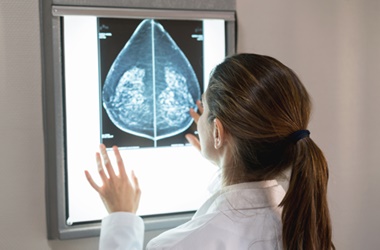GPs may be asked by hospitals to carry out additional tests when referring patients with suspected or confirmed cancer to help prioritise cases, NHS England has said.
In its Covid-19 standard operating procedure for general practice, updated yesterday, NHS England released new details on how GPs should deal with patients with suspected or diagnosed cancer, including those having ongoing treatment.
In addition to carrying out tests ‘if they have appropriate access’, GPs should be prepared to ‘implement effective safety netting’ for people presenting with symptoms, said NHS England.
But the BMA said that while both primary and secondary care clinicians have been under ‘immense pressure’ during the outbreak, it was crucial that new ways of working ‘do not place unrealistic expectations on anyone’.
The NHS England document said practices should continue to refer patients under NICE guidance.
It said: ‘Secondary care will triage and prioritise if capacity constrained. Practices may be asked to support prioritisation with additional tests alongside referrals, if they have appropriate access.
‘Practices should ensure they implement effective safety netting for people presenting with symptoms.’
The guidance added: ‘Post-referral, secondary care will use patient tracking lists where investigations take place at a later date. Clear processes for clinical assessment if there is any change/deterioration in a patient’s condition are vital.’
It noted that it still remained the case that secondary care would require consent from the referring clinician in primary care before any urgent cancer referrals are downgraded.
The guidance also noted that patients who are due to begin or are undergoing cancer treatment will consider with their oncologist whether to start or continue this during the pandemic.
‘Some patients may wish to defer referral/treatment – if practices are unable to follow usual practice, they should ensure decisions and reasons are recorded and safety netting in place,’ added NHS England.
In response BMA GP Committee chair Dr Richard Vautrey said GPs must be ‘properly resourced’ when required to carry out any new activities.
He said: ‘Clinicians across the NHS, in general practice, hospital and other services have all been under immense pressure in the past months responding to the Covid-19 pandemic.
‘It is vital that they work together to develop improved, sustainable care pathways that do not place unrealistic expectations on anyone.’
He said: ‘Due to the reduced number of patients attending hospitals, GP practices are being expected to undertake tests and prescribe medication for hospital patients that would normally be given in secondary care.
‘This includes undertaking work, including at times the completion of tests, before making a possible cancer referral to prevent delays in treatment.’
Dr Vautrey added: ‘General practice must be properly resourced for any new activity in order that staff can continue to give patients… the safe, high-quality care they need and deserve.’
Earlier on in the pandemic, London GPs were blocked from referring patients with urgent suspected bowel cancer to hospitals based on symptoms alone, under changes to local NHS guidance brought about by the Covid-19 outbreak.
NHS England’s London team raised the two-week wait referral threshold for lower gastrointestinal cancer and said that patients could only be referred if they had a positive FIT test result.
But GP cancer experts warned a negative FIT test result, which contradicted NICE guidance, does not rule out cancer altogether.
The team later declared that it had explained to GPs that they may refer patients if there is ‘strong clinical suspicion’, but that a FIT test must still be carried out to aid diagnoses.
Pulse July survey
Take our July 2025 survey to potentially win £1.000 worth of tokens












